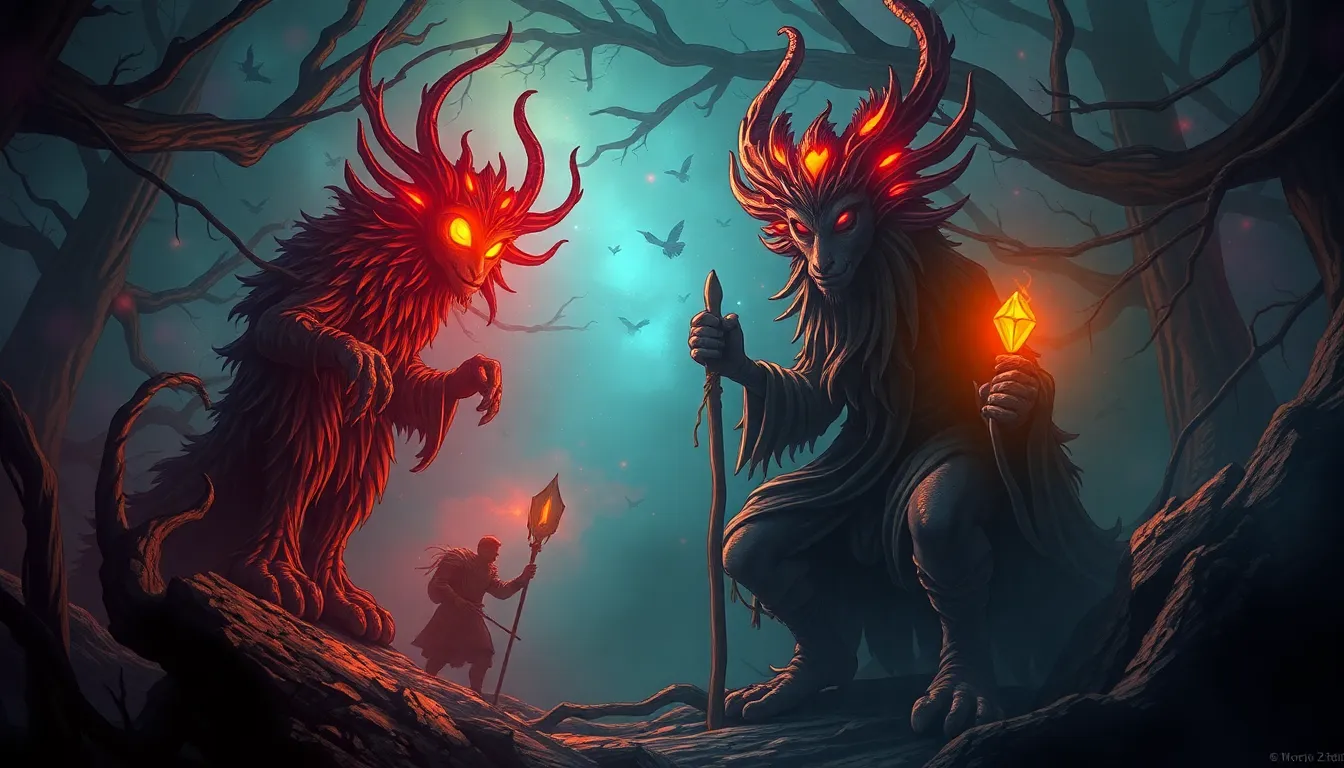Moral Myths and the Quest for Truth: Lessons from Legends
Introduction: Defining Moral Myths and Their Significance
Moral myths are narratives that embody cultural values and ethical lessons, often passed down through generations. They serve as a lens through which societies interpret morality and truth. These legends, whether originating from ancient civilizations or modern storytelling, play a crucial role in shaping social norms and individual behaviors. They help individuals navigate complex moral landscapes by providing simplified narratives of right and wrong, thereby influencing our understanding of truth and morality.
The Nature of Truth: Philosophical Perspectives
The concept of truth has been debated by philosophers for centuries, resulting in various interpretations. Some of the most prominent perspectives include:
- Correspondence Theory: This theory posits that truth corresponds to reality; a statement is true if it accurately reflects the world.
- Coherence Theory: Truth is seen as a system of interconnected beliefs that support one another, regardless of empirical evidence.
- Pragmatic Theory: Truth is determined by the practical consequences of belief and whether it works effectively in real-life situations.
These philosophical interpretations intersect with moral truths, where societal beliefs often dictate what is considered right or wrong, further complicating the quest for objective truth.
The Role of Legends in Shaping Morality
Legends and myths have historically reflected the cultural values of their time. They serve not only as entertainment but also as moral compasses for communities. Specific legends illustrate profound moral lessons that resonate with the values of their respective cultures. For instance:
- The Tale of King Midas: This Greek legend teaches the dangers of greed and the importance of valuing what truly matters in life.
- The Story of the Tortoise and the Hare: A fable that emphasizes the virtues of patience and perseverance over arrogance and haste.
Such stories encapsulate the moral frameworks of their societies, providing insight into the ethical considerations that guide behavior.
Famous Moral Myths: Analysis and Interpretation
Examining key moral myths from various cultures reveals the rich tapestry of human morality. Some notable examples include:
- Prometheus (Greek Mythology): This myth underscores the conflict between divine authority and human curiosity, highlighting themes of sacrifice and the quest for knowledge.
- The Native American Legend of the Two Wolves: This story illustrates the internal struggle between good and evil, teaching that the wolf we feed represents our moral choices.
These myths encapsulate complex moral lessons that continue to resonate with individuals across different cultures and eras.
The Psychological Impact of Moral Myths
Moral myths significantly influence individual behavior and societal norms. They create frameworks for understanding right and wrong, often shaping collective behavior. The psychological mechanisms behind belief in these myths include:
- Social Identity: Myths often reinforce group identities, creating a sense of belonging and shared values.
- Cognitive Dissonance: When individuals encounter conflicting beliefs, they often resort to myths to resolve dissonance and maintain their worldview.
This psychological interplay underscores the power of moral myths in guiding behavior and societal expectations.
Moral Myths in Modern Society: Relevance and Adaptation
Contemporary legends continue to emerge, reflecting modern moral dilemmas and societal values. Examples include:
- Urban Legends: Stories like the “killer in the backseat” reflect societal fears and moral lessons about vigilance and caution.
- Social Media Narratives: Viral stories often encapsulate moral lessons about compassion, justice, or the consequences of unethical behavior.
These modern narratives serve to challenge or reinforce traditional moral myths, adapting them to contemporary contexts.
Debunking Myths: The Quest for Objective Truth
The relationship between moral myths and empirical truths is complex. While myths offer valuable insights, they can also conflict with objective truths. Examples of myths that have been challenged include:
- The Myth of the Noble Savage: This idea romanticizes indigenous cultures while oversimplifying their complexities.
- Myths about Gender Roles: Traditional beliefs about gender have been debunked through scientific research, revealing a more nuanced understanding of gender identity.
Such examples highlight the need for critical examination of moral myths in the pursuit of objective truth.
The Role of Education in Navigating Moral Myths
Education plays a pivotal role in helping individuals navigate moral myths. Critical thinking skills are essential for understanding and interpreting these narratives. Strategies for educators include:
- Encouraging open discussions about moral dilemmas presented in myths.
- Integrating comparative mythology to explore different cultural perspectives.
- Fostering analytical skills to evaluate the relevance and applicability of moral lessons in contemporary contexts.
Such approaches can help students critically engage with moral myths while appreciating their cultural significance.
Cultural Relativism and Universal Morality: A Complex Relationship
The interpretation of moral myths varies across cultures, leading to discussions about cultural relativism versus universal morality. While some argue that morals are culturally constructed, others advocate for the existence of universal moral truths. This complex relationship invites exploration into:
- The impact of cultural context on moral interpretations.
- The potential for shared ethical principles that transcend cultural boundaries, such as justice and compassion.
Understanding this dynamic challenges us to appreciate the diversity of moral thought while seeking common ground.
Conclusion: Embracing Myths in the Search for Truth
The exploration of moral myths and legends offers valuable insights into the human quest for truth. While these narratives guide us in understanding morality, it is crucial to acknowledge their limitations and the need for critical evaluation. Embracing moral myths can enhance our comprehension of cultural values and ethical lessons, helping us navigate the complexities of contemporary life. Ultimately, the quest for truth requires a balance between honoring the wisdom of legends and pursuing empirical understanding.


